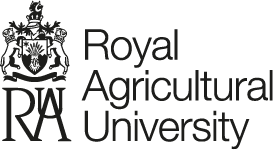Culture Clash? What cultured meat could mean for UK farming
MacMillan, Tom, Lewis, Katherine, Dooley, John, Morgans, Lisa C, Sexton, Alexandra, Ali, Mustafa, Allan, Scott, Argyle, Iain, Dunsford, Illtud, Goodman, Michael, Lynch, John, Manning, Louise, Ranawana, Viren, Rose, David Christian, Rothman, Rachael, Sibly, Will, Vasilopoulos, Anastasios and Wylie, Adele (2024) Culture Clash? What cultured meat could mean for UK farming. [Report]
|
Text
Culture Clash - What cultured meat could mean for UK farming_0.pdf - Published Version Available under License Creative Commons Attribution. Download (5MB) | Preview |
Abstract
Headlines It may one day be possible to substitute meat grown through cell culture imperceptibly for meat from livestock. Farmers’ concerns about cultured meat go beyond the impact on their bottom line, including that it is: ■ Uncertain: there are still too many unanswered questions. ■ Unreliable: unbiased data is hard to come by. ■ Unrealistic: work is needed to map how new supply chains could work in practice. ■ Unintended: having many potential knock-on effects. ■ Unfair: questioning who benefits from this further industrialisation of our food system. ■ Unnatural: in contrast to the ‘real’ food the farmers produced. Factors such as business diversification, tenure, assets and contractual relationships affect farmers’ resilience or precarity to this potentially disruptive technology. Yet, under the right circumstances, cultured meat could present opportunities for some UK farmers: ■ Sharpening their competitive edge for selling high-value ‘real meat’. ■ Developing potential new markets such as supplying animal cells or raw materials. ■ Generating income from processing crop or animal by-products as ingredients. ■ Harnessing private investment to produce cultured meat on their own farm. ■ Developing new, fairer supply-chain relationships. Initial analysis suggests that using crop and animal by-products as amino acid sources for cultured meat production could reduce its cost and environmental footprint, while farm-scale production would cost about 30% more than factory-scale. While some farmers were interested in exploring these possibilities further, caring for livestock remained central to their identity. Moving beyond a polarised debate would benefit the cultured meat industry, but it may also benefit farming. Advocates of cultured meat can support this through more inclusive communication: acknowledging uncertainties, celebrating farmer innovation and working with honest brokers. The cultured meat industry and farmers could build common ground through: ■ Joint research and innovation, particularly into waste valorisation and on-farm production. ■ Developing practical partnerships and mechanisms for continued dialogue, such as a platform for interested farmers to connect with cultured meat businesses and a short guide to cultured meat for farmers. ■ Investors expecting cultured meat companies to include farmers in their Environmental, Social and Governance commitments to support a ‘just transition’.
| Item Type: | Report |
|---|---|
| Keywords: | Cultured meat, Farmers, UK farming |
| Divisions: | Agriculture, Science and Practice |
| Depositing User: | Dr John Dooley |
| Date Deposited: | 15 Jul 2024 09:00 |
| Last Modified: | 29 Nov 2024 16:56 |
| URI: | https://rau.repository.guildhe.ac.uk/id/eprint/16769 |
Actions (login required)
 |
Edit Item |

